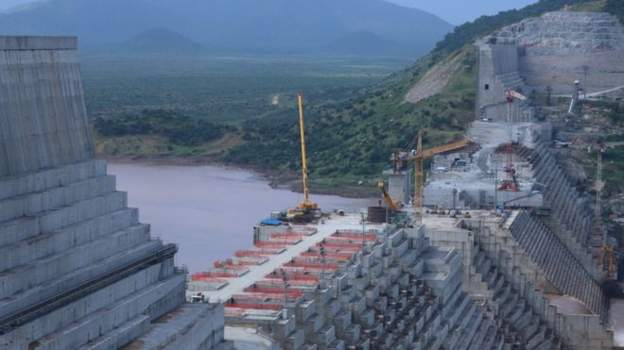Egypt, Ethiopia and Sudan have now agreed on a deal for the construction of a giant hydropower dam on the Blue Nile.
The project had triggered a diplomatic crisis especially between Egypt and Ethiopia.
But after holding talks in Washington on Wednesday, ministers from the three countries agreed on a deal which is to be finalized later this month.
Officials of the three countries will reconvene in Washington later this month to finalize the deal which should end the crisis.
Last year similar talks over how the $4 billion hydropower dam will be operated did not end well.
Ethiopia in September 2019 rejected a plan proposed by Egypt for operating the dam.
Source of conflict
The construction of the Grand Ethiopian Renaissance Dam (GERD) was announced in 2011.
It is could make Ethiopia Africa’s biggest power exporter, generating more than 6,000 megawatts.
Egypt and Ethiopia disagree over the annual flow of water that should be guaranteed to Egypt and how to manage flows during droughts.
Egypt relies on the Nile for 90% of its fresh water and it wants the GERD’s reservoir to release a higher volume of water than Ethiopia is willing to guarantee.
At the centre of the dispute is the speed with which Ethiopia fills the mega dam.
The dam although would not consume water, the speed with which Ethiopia fills up the dam’s reservoir will affect the flow downstream.
What was agreed on?
The ministers who met in Washington agreed to fill the Dam in stages during the wet season, taking into account the impact on downstream reservoirs.
The U.S. Treasury Department, which hosted the meeting, said in a joint statement with the countries and the World Bank that the initial filling of the dam, due to begin in July, will aim for a level of 595 meters above sea level.
The statement said early electricity generation will take place while providing appropriate mitigation measures for Egypt and Sudan during severe droughts.
The ministers will now hold technical and legal talks ahead of their Jan. 28-29 meeting in Washington where it is hoped they will finalize the agreement.
Ethiopia says the dam will start power production by the end of 2020 and be fully operational by 2022.
Source: Africafeeds.com



